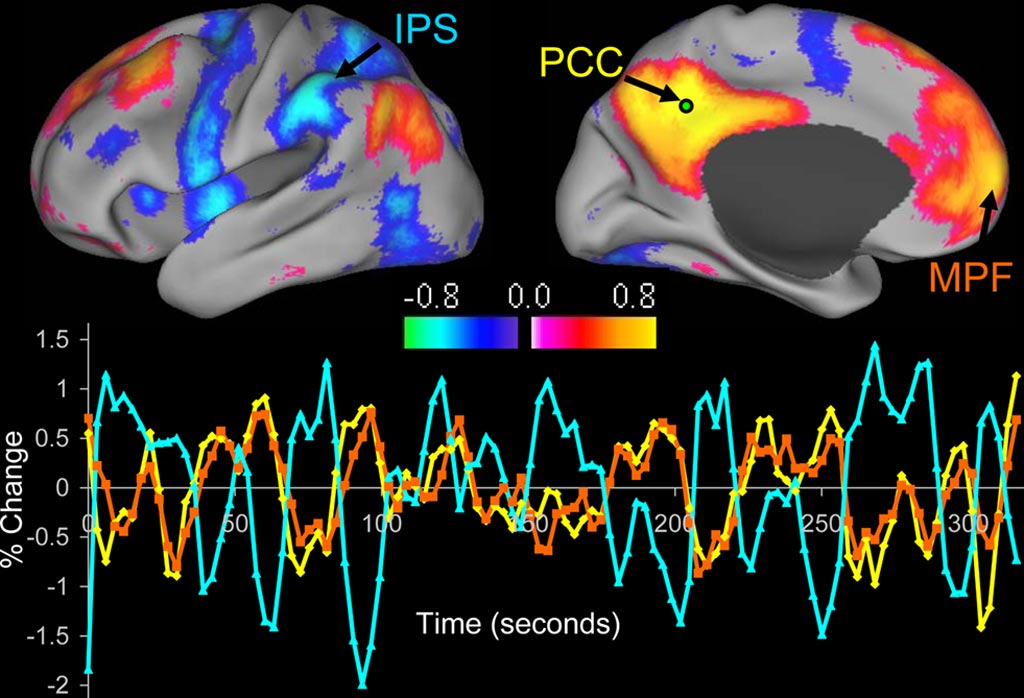Brain Connectivity Discoveries Could Provide Behavior Insights
By MedImaging International staff writers
Posted on 20 Sep 2017
Scientists have published a new review of research projects into the functional connections in the brain that show how brain circuits function together and could provide insights into how psychiatric disorders develop and how treatment could be improved.Posted on 20 Sep 2017
The review looks at how new advanced neuroimaging techniques, based on resting-state functional connectivity Magnetic Resonance Imaging (rsfcMRI), can help researchers study circuit-level abnormalities that may be linked to psychiatric disorders.

Image: The image shows an example of resting-state functional connectivity Magnetic Resonance Imaging (rsfcMRI) (Photo courtesy of Washington University).
The review and update was published in the September/October, 2017 issue of the journal Harvard Review of Psychiatry by researchers from the Washington University (St. Louis, MO, USA).
The researchers focused on rsfcMRI research, which is used to measure how spontaneous fluctuations in blood oxygen level-dependent signals are coordinated in the human brain. The data could provide new insights into depression, anxiety, cognitive impairment, substance abuse, and other psychiatric disorders.
Deanna M. Barch, PhD, said, "These advances have provided the basis for recent efforts to develop a more complex understanding of the function of brain circuits in health and of their relationship to behavior—providing, in turn, a foundation for our understanding of how disruptions in such circuits contribute to the development of psychiatric disorders. Ongoing resting-state activity may provide a critical and rich source of disease-relate variability. The hope is that these analyses will shed new light on how behavior of many different forms is related to functional brain connectivity, ultimately providing a new window for understanding psychopathology."
Related Links:
Washington University














